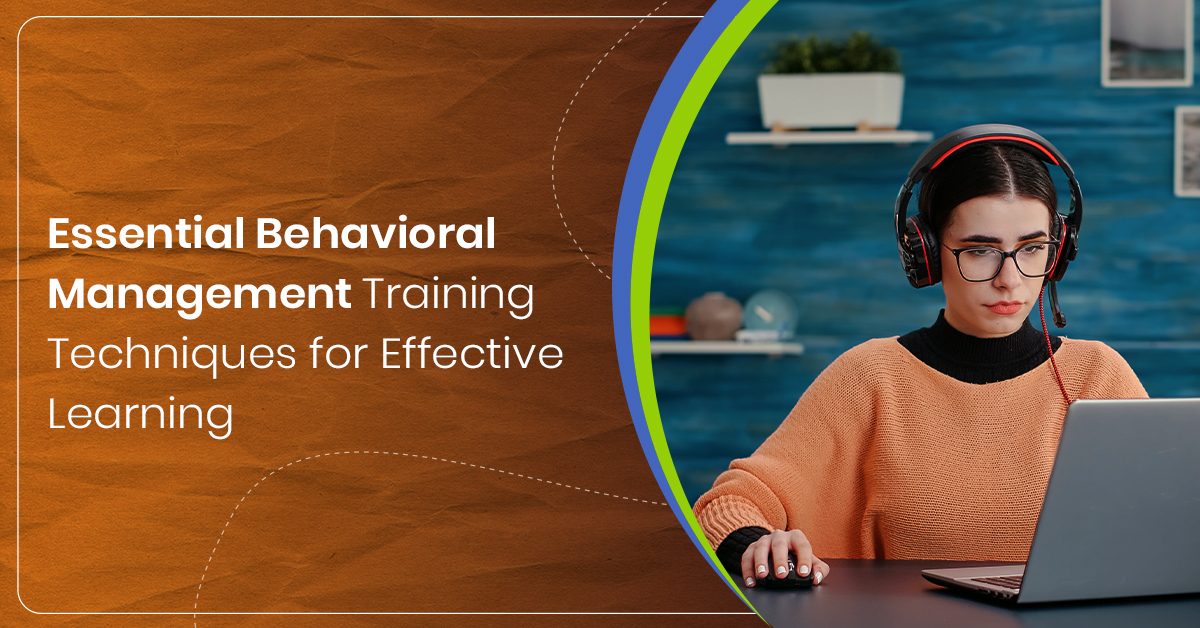
Essential Behavioral Management Training Techniques for Effective Learning
The intricate relationship between behavioral management and effective learning is a cornerstone of modern educational success. When we delve into the dynamics of student learning, it becomes evident that managing behaviors within an academic setting is as crucial as the content being taught.
A well-rounded educational approach ensures that a student’s behavioral tendencies are aligned with the learning objectives. This ultimately fosters a more conducive learning environment. In this context, behavioral management training emerges as a critical tool. Customized tutoring programs play a pivotal role in this process.
What is Behavioral Management?
Behavioral management is the systematic approach to understanding and influencing the behavior of students within a learning environment. It involves strategies and techniques that educators use to encourage positive behavior while minimizing disruptive actions that can hinder learning.
Behavioral Management Training for Effective Learning
Behavioral management training refers to the formal process of equipping educators, parents, and tutors with the skills and strategies necessary to manage and guide student behavior positively. This training is vital for effective learning as it helps in addressing behavioral issues that may arise in a classroom or during tutoring sessions.
This ensures that they do not impede the learning process. By implementing these techniques, educators can create a stable learning environment where students can thrive.
10 Essential Behavioral Management Training Techniques for Effective Learning
1. Positive Reinforcement:
One of the most effective behavioral management techniques is positive reinforcement. Rewarding students for good behavior encourages them to continue behaving in a desirable manner. This technique can be used in both classroom settings and during one-on-one tutoring sessions.
2. Clear Expectations:
Setting clear, concise expectations at the outset helps students understand what is required of them. When students know the boundaries and the consequences of crossing them, they are more likely to adhere to the expected behavior.
3. Consistent Routine:
Establishing a consistent routine provides students with a sense of security and predictability. This consistency can reduce anxiety and uncertainty, which often leads to better behavior and increased focus on learning.
4. Interactive Learning:
Incorporating interactive elements in lessons keeps students engaged, reducing the likelihood of disruptive behavior. Interactive learning can include group activities, games, or technology-based learning tools that cater to different learning styles.
5. Customized Tutoring:
Personalized or customized tutoring addresses the unique needs of each student. By tailoring the teaching methods to suit individual learning styles, tutors can effectively manage behavioral issues by keeping the student engaged and focused.
6. Behavioral Contracts:
Creating a behavioral contract with students involves them in the process of managing their behavior. This agreement outlines specific behaviors that are expected, along with the rewards or consequences associated with them.
7. Timeouts:
When used appropriately, timeouts can be an effective way to manage disruptive behavior. It provides the student with a moment to calm down and reflect on their actions before rejoining the learning activity.
8. Parent-Teacher Interaction:
Regular parent-teacher interaction is crucial in managing student behavior. When parents and teachers collaborate, they can provide consistent support and address behavioral issues more effectively, ensuring that the child receives a unified message about expectations and consequences.
9. Positive Communication:
Open and positive communication between educators, students, and parents fosters a supportive environment. When students feel heard and understood, they are more likely to behave positively and engage fully in their learning.
10. Professional Development:
Ongoing behavioral management training for educators is essential. By staying updated with the latest techniques and strategies, teachers can better handle a wide range of behavioral issues, ensuring that learning remains uninterrupted.
Top 4 Online Tutoring Platforms Focusing on Customized Tutoring
1. The eTutor Home:
Leading the market in India, The eTutor Home offers customized tutoring programs that incorporate effective behavioral management techniques. Their approach includes regular parent-teacher interaction and parent counseling. This ensures that each student receives holistic support tailored to their specific needs.
2. TutorVista:
Known for its personalized learning plans, TutorVista focuses on addressing both academic and behavioral needs through one-on-one sessions.
3. Chegg Tutors:
With a broad range of tutors available, Chegg Tutors allows for tailored sessions that cater to individual student needs, including behavioral management strategies.
4. Wyzant:
This platform connects students with tutors who specialize in customized learning plans, including managing behavioral challenges alongside academic instruction.
How The eTutor Home Implements Behavioral Management Training Techniques
The eTutor Home stands out by integrating behavioral management training into its tutoring programs. They focus on customized tutoring by assessing each student’s unique needs and developing tailored strategies to address both academic and behavioral challenges.
Through regular parent-teacher interaction, The eTutor Home ensures that behavioral management techniques are consistently applied, both during tutoring sessions and at home.
Additionally, their parent counseling services provide families with the necessary support to reinforce positive behavior outside of the classroom, creating a comprehensive approach to effective learning.
Conclusion
Effective learning is not just about academic instruction. It also involves managing student behavior in a way that fosters a positive and productive learning environment. Behavioral management training equips educators, parents, and tutors with the tools necessary to guide students towards success.
Platforms like The eTutor Home exemplify how a well-rounded approach to tutoring can make a significant difference in a student’s educational journey.
Recent Posts
- IB, GCSE, and A Levels Got You Stressed? Get Help with 1-on-1 Online Tutoring
- Your Ultimate Guide to IGCSE and GCSE: AQA, O-Level, AS, and A-Level Explained
- How to Ace IB DP & A Levels – Study Hacks for Indian Students
- How US Students Can Excel in IB DP, GCSE, and A Levels
- Everything You Need to Know About the AP Curriculum: Courses, Benefits & Exam Tips
- Top Study Tips for IBDP Students: How to Excel in the International Baccalaureate
